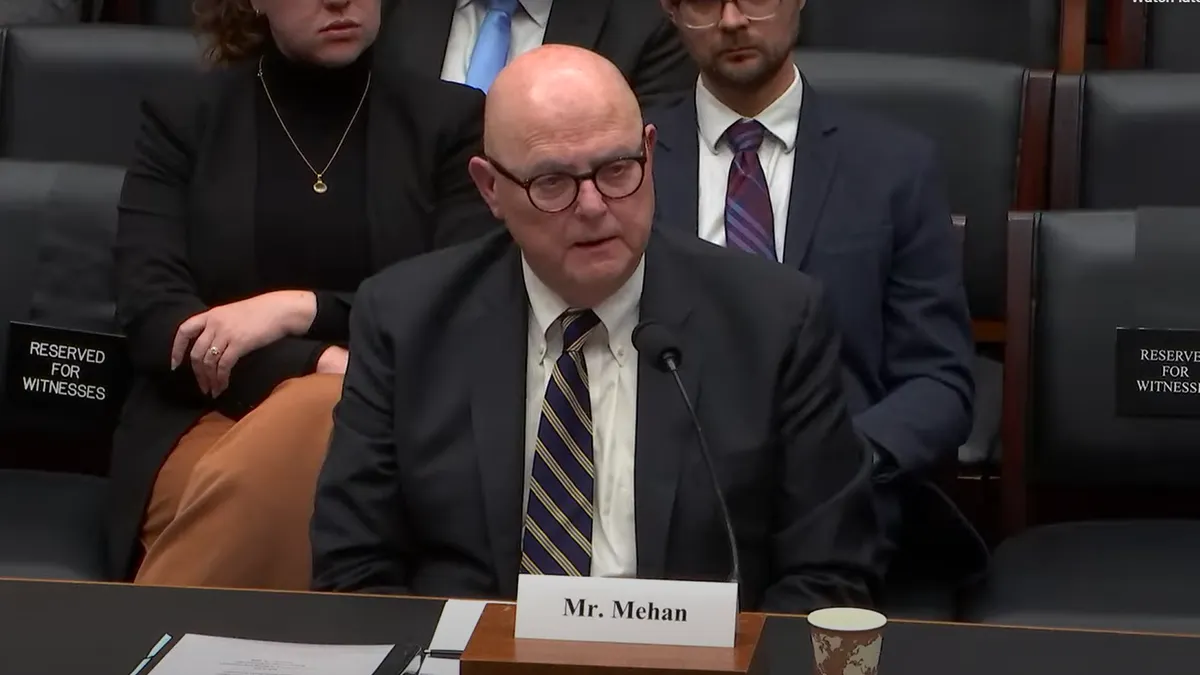Waste Management's plan to acquire Advanced Disposal Services is still pending required antitrust approval, with both companies remaining tight-lipped until federal regulators finish assessing one of the industry's largest deals in years.
Based on recent commentary and precedent, the estimated $4.9 billion transaction is largely expected to go through. The main question now is how much the Houston-based industry giant may have to divest, and under what conditions, before it can close as planned in early 2020.
Antitrust 101
Before the deal can be approved, Waste Management and Advanced Disposal are required to submit a Hart-Scott-Rodino (HSR) premerger notification and report with the U.S. Department of Justice and Federal Trade Commission. Both companies did so May 9, per filings with the Securities and Exchange Commission.
According to L. Pahl Zinn, an antitrust attorney from the law firm Dickinson Wright, the DOJ is focused on determining two things in its HSR review.
"Are you going to be removing competition for the market? Are you going to end up with a monopoly? It's not illegal to have a monopoly, but it's improper to use monopoly power for improper means," Zinn told Waste Dive. "It's a very in-depth and complicated process, and when you have mergers of this nature, the agency is going to take a really hard look at a lot of specific information."
Zinn said the DOJ review process usually starts with the Herfindahl-Hirschman Index (HHI), a formula used to measure market concentration before and after a potential deal. This review includes assets owned, customers serviced, number of regional competitors and a variety of other factors.
"It can be a very complicated and intense process in terms of what the agencies are looking at," said Zinn.
Using the HHI point system, any number higher than 2,500 is considered "highly concentrated" and will bear further attention. DOJ reviews of other industry deals have found HHI totals above that threshold in multiple instances.
Reflecting this particular deal's complexity, the companies have not yet been granted an early termination of the mandatory 30-day waiting period for completing the transaction. Instead, they voluntarily withdrew and refiled their materials on June 12 "in order to provide the DOJ with additional time for review." The DOJ sent a "second request" for additional information on July 12.
Because HSR proceedings are largely exempt from the Freedom of Information Act, Waste Dive could not verify the contents of the filings or the second request.
The second request effectively extends the waiting period until 30 days beyond when the companies are deemed to be in "substantial compliance." During Waste Management's Q2 earnings call on July 25, executives said more details could be coming within the next two to three months.
"We're continuing to do everything we can from a regulatory standpoint to make sure the process with the DOJ goes as expeditiously as it can," said COO John Morris.
Another element that could affect timing is if competitors or customers voice concerns for the DOJ to investigate further. So far, that doesn't appear to be happening. Still, referencing the DOJ's recent failed challenge to AT&T's $85 billion purchase of Time Warner, Zinn expects the agency's efforts to be thorough.
"Whether it be the waste disposal market or a different market, I think that the DOJ is really going to take their time and make sure that they have this one," he said. "They're going to do a close examination and make sure they have it examined to a point where they're comfortable with it."
Past examples
If the deal is approved, it's widely expected the DOJ will require divestments. Waste Management has agreed to sell assets worth up to $200 million in annual revenue if this turns out to be the case — which has fueled plenty of speculation over which markets could be up for grabs.
"It's places like Wisconsin, northern Chicago, Detroit, Pennsylvania, Georgia," Michael E. Hoffman, managing director at Stifel, told Waste360 in a May interview. "At the end of the day this will be some disposal assets, a little bit of collection. I would be very surprised [if] they don't get through it."
A 2013 DOJ report, submitted as part of an Organization for Economic Co-operation and Development policy roundtable on waste sector competition, provides further guidance on the agency's traditional approach.
The document outlines why landfills are prime focuses, noting that it can be "time-consuming and, in some heavily populated areas, virtually impossible" for new players to enter the market. Transfer stations are often key factors as well, since long-haul dynamics can affect price control.
The DOJ also outlines why it's particularly focused on commercial container service: "Given their costs for the volume generated by commercial customers, residential and industrial collection would not be viable alternatives if a hypothetical [small commercial container] collection monopolist were to impose a small but significant nontransitory increase in price."
The agency goes on to explain how, due to these factors, it generally requires "clean sweep" divestitures in most waste industry cases to preserve competition.
One example cited was a 2008 settlement — supported by seven attorneys general — regarding Republic Services' $4.5 billion acquisition of Allied Waste Industries. Many of the 13 disposal markets and nine commercial collection markets involved saw a clean sweep approach. In total, the deal led to divestment of 87 routes, nine landfills and 10 transfer stations.
Another notable intervention came with Star Atlantic's $1.9 billion acquisition of Veolia in 2012. This eventually led to a divestiture settlement over assets in two states — including five transfer stations, one landfill and multiple collection routes. A smaller deal, Waste Management's 2015 purchase of Kansas-based Deffenbaugh Disposal, also led to divestments of landfill and collection assets in two states.
Still getting bigger
The DOJ may characterize its analysis as "extensive," but the evaluation criteria aren't considered holistic enough by some industry observers.
Groups such as the Institute for Local Self-Reliance (ILSR), which have been vocal critics of what they consider lax antitrust enforcement in general, see this latest deal between the U.S. industry's No. 1 and No. 4 companies as limiting choice.
"The bottom line is that [big waste] companies have acquired control of over 75% of the landfill capacity in the country, and maybe 50% of the hauling market," ILSR Co-founder Neil Seldman told Waste Dive. "Now, in the last few years, they've concentrated on creating monopolies of [MRFs], and this is very disadvantageous to cities."
Seldman pointed to Washington, D.C.'s single-stream MRF agreement with Waste Management as one example of decreased competition that has hurt local competitors.
Others in positions of industry power often downplay such concerns, saying instead that consolidation can lead to higher quality service. They also point to the existence of smaller regional players, as well as to the rise of major players such as GFL Environmental, as examples of market fluidity.
Analysis from Waste Business Journal indicates a handful of publicly-traded companies now account for an estimated 60% of total revenue being generated, with just two controlling about half of all remaining U.S. landfill capacity.
Waste Management estimated the Advanced deal could grow its customer list by 15%, and is set to widen the gap between itself and other North American competitors if all goes according to plan. In another sign that this DOJ process is viewed as something of a foregone conclusion, CEO Jim Fish recently said that he's optimistic the deal might even wrap on the earlier end of an originally projected 12-15 month timeframe.


















